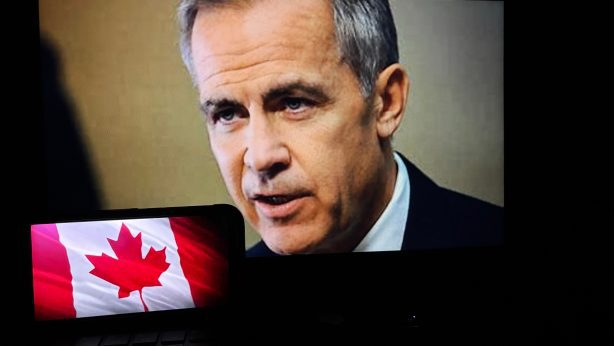Canada needs an off-ramp from privatization highway: public health care advocates
This week’s edition of who is saying what about public health care is compiled by Pat Van Horne.
More on dangers of increasing health care privatization
“As Canada travels further down the privatization highway, finding an off-ramp will become more and more difficult. What’s at stake now and in the next election is the role of the federal government in upholding standards and accountability under the Canada Health Act. Provincial premiers keep demanding that funding flows with no strings attached as many of them champion more private delivery of services. But ordinary Canadians want to know that our public health care will be protected, and expect the federal government to play a proactive role in defending it. We certainly can’t afford to have a prime minister who will enable even more privatization of this vital public service,” wrote Council of Canadians Chair John Cartwright and Ontario Health Coalition Executive Director Natalie Mehra in The Hill Times, April 8, 2024
Improving care is about more than adding beds, says Manitoba premier
“We know we need to add beds, which means adding staffing. This is not just something like flicking the light switch and then it happens overnight. . . This is something that takes careful planning. . . We’re encouraging new grads to stay in the province. Some would say ‘beg’. My message to nursing grads and others is: Please! Stay in Manitoba . . . We’re not here talking about ‘mission accomplished.’ We’re here talking about first steps and next steps,” said Manitoba Premier Wab Kinew, to the Winnipeg Free Press, April 9, 2024
Let’s have pharmacare that covers what’s best
“Insulin pumps are just one example of a larger imperative: the need to base coverage on the best and most independent evidence available. Otherwise, we risk throwing money away on drugs and devices that are neither cost-effective nor providing patients with better health outcomes. . . Health Minister Mark Holland has framed the funding of just two drug categories as a ‘proof-of-concept opportunity’ to test the effectiveness of the universal single-payer model. In fact, the model’s effectiveness is well established, as the government’s own advisory council concluded. What’s missing is proof of the government’s commitment to a national single-payer plan, based solidly on the evidence,” wrote health policy writer/researcher (and type 1 diabetic) Colleen Fuller and Sharon Batt, adjunct professor at Dalhousie University. Fuller and Batt are both members of Independent Voices for Safe and Effective Drugs, in The Hill Times, April 9, 2024
Pharmacists in Alberta and other provinces come out against exclusive deals with insurers
“Central to this concern is the autonomy of patients and their right to choose their health provider to meet their personal health needs . . . As this is an issue of national concern, pan-Canadian efforts and strategies are important,” said Alberta College of Pharmacy spokesperson Barry Strader, to The Globe and Mail, April 8, 2024
Ontario NDP calls for special audit into private, fee-based health care
“Ontarians, like all Canadians, are proud of our public health care system built over generations and founded on the basis that care should be based on need, not on ability to pay. But increasingly people across Ontario are facing new charges and fees to access health care . . .Doug Ford’s privatization experiments are putting care at risk . . . Once you start to have a doctor who’s running the clinic or a company, that’s running the clinic. If there’s services that aren’t covered by OHIP, they can charge for that. So they’re charging [patients] for things, like administrative fees . . .We want the auditor general to show us who is charging what to whom. Much of what we hear is, ‘oh, it’s not the physician charging, it’s a company who owns the clinic who does it.’ Well, this is still against the Canada Health Act,” said Ontario NDP Leader Marit Stiles, ahead of a motion calling for special audit into how fees are being imposed on patients accessing primary care services in Ontario, Queen’s Park Briefing, April 8, 2024
Some ‘cavities’ showing up in Dental Care Plan
“I’m hearing that the sign-up (by dentists) is slow . . . I do not think it’s as high as we would hope in order for this plan to be successful,” said Dr. Heather Carr, president of the Canadian Dental Association, to CBC News, April 7, 2024
Private care home operators accused of “gross negligence” still getting support from government
“We are fed a steady diet of announcements about how the government of Ontario is spending a fortune on fixing long-term care. While beds are being added, beds are also being lost — but if you want to know whether the total number is growing or shrinking, tough luck. The province no longer publishes that information, and it didn’t respond to my requests about it, either,” said economist Armine Yalniyan, to the Toronto Star, April 6, 2024
Truth and Reconciliation: Analysis of Indigenous health care rights – not there yet after six years
“The federal government has not implemented the health care rights of Indigenous people, but it is developing new legislation designed to improve Indigenous access to culturally relevant health services,” analyzed CBC News, April 3,2024
Case in point: It’s not working for Manitoba First Nations
Medevacs can take up to 16 hours to get patients from the community to Winnipeg, according to Greg Harper, health director for Red Sucker Lake First Nation.
“They’re sick in the first place and they have to go through that. When they arrive there [in Winnipeg], they have to sit in the waiting room for hours and hours. It’s not good. . . We have no choice. If we had a hospital here, it would eliminate that cost. . . There’s four communities that can use that,” said Ian Knott, health director for Wasagamack First Nation with the Four Arrows Regional Health Authority, which oversees health care in the Island Lake region, to CBC News, April 8, 2024
Nova Scotia experimenting with ‘physician assistants’
“Primary care is the foundation [of the health-care system] and if this can allow access or attachment and get more people timely access to primary care, then it will be worth it,” stated the N.S. Health Authority medical director of innovation, to CBC News, April 3, 2024
Pharmacare needs to be universal, says patient advocate
“The existing patchwork system imposes a significant administrative burden on physicians, and fosters disparities in health-care access. Transitioning to a national pharmacare plan, fully funded by medicare cards, would relieve this burden and guarantee equitable medication access nationwide. . . Moreover, establishing an expert panel with patient representation is imperative to ensure inclusivity and responsiveness to diverse needs. Contrary to claims by Innovative Medicines Canada, a single-payer system would not impede access to innovative treatments. As a patient with 23 years of experience, I attest that efficacy, not cost, should drive access decisions,” wrote Cheryl-Anne Simoneau, founder and board member of The Chronic Myelogenous Leukemia (CML) Society of Canada, in The Hill Times, April 8, 2024
Undocumented woman asked to pay $5,000 upfront for emergency procedure
“I don’t think anybody should be withholding care, especially in an emergency situation,” said Diana Ramirez, a community organizer with the Alberta Workers Association for Research and Education (AWARE), to in CBC, April 9, 2024
Delays or barriers to accessing care in a health emergency “are simply unacceptable,” said Chris Gallaway, executive director of Friends of Medicare, in CBC, April 9, 2024
Support the Canadian Health Coalition



